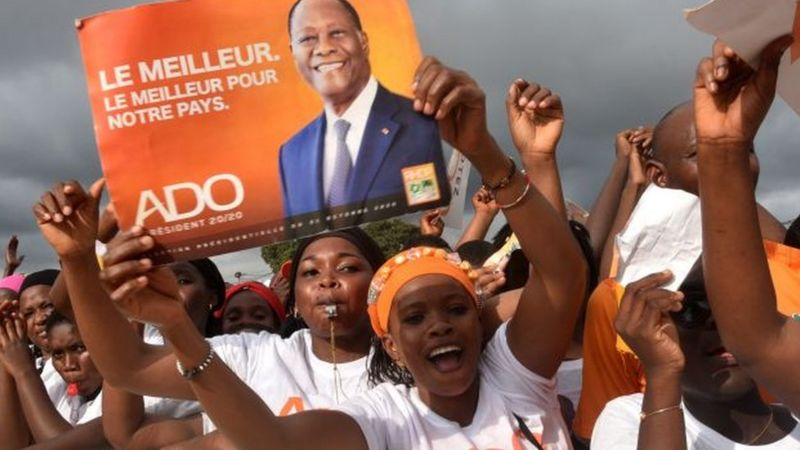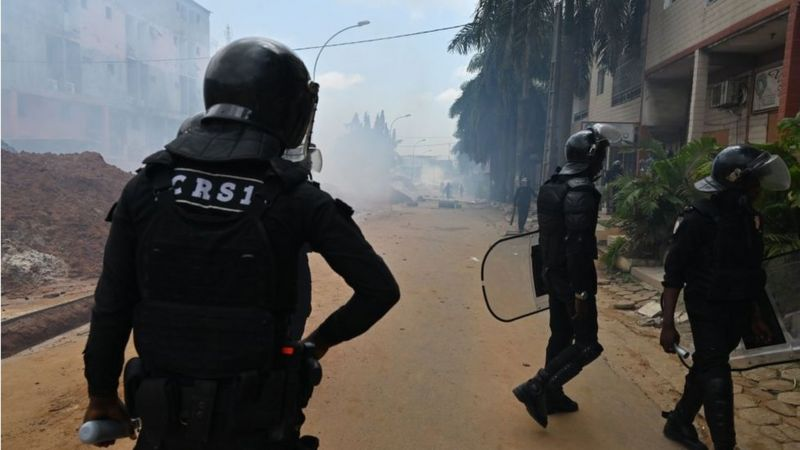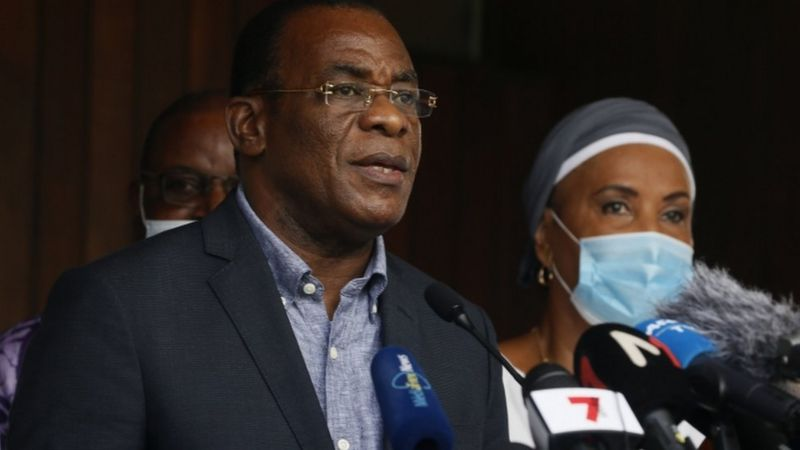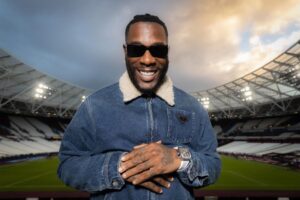Presidential elections in the Ivory Coast have brought on tensions and violence which are all too familiar for the West African nation. Thousands of residents in Abidjan, the economic capital, fled from their homes fearing violence during the election. Many packed their bags several days before, fearing a repeat of the 2010 election in which the city became a battleground for fighting that resulted in the deaths of 3,000 people.
“I am leaving Abidjan because of what happened in 2010 – I don’t want to go through that again,” Véronique Yao told Africanews. Much of the tension comes from President Alassane Ouattara’s decision to run for a third term. The opposition has rejected this pursuit, triggering scattered clashes between rival communities. Protesters had blocked the main route between Abidjan and the north of the country, blocking passage. In some neighborhoods in and around Daoukro, a stronghold of opposition leader Henri Konan Bedie, groups of youths set up makeshift barricades.

Photo: Supporters of Alassane Ouattara (AFP)
On November 3, the electoral commission announced that President Alassane had won a third term in office with 94.27 percent of the vote. According to Kuibiert-Coulibaly Ibrahime, the head of the electoral commission, the final turnout for the October 31 election was at 53.9 percent. However, the two main opposition candidates on the ballot had asked supporters not to take part in the election in protest of Ouattara’s decision to run again. Their parties said large swathes of the country had not participated in the election.
Opposition activists claim that Ouattara’s decision to go after a third term was a further blow to democracy in West Africa, just less than three months after a military coup in neighboring Mali and a successful third term bid by Guinea’s President Alpha Conde. While Ouattara, received more than 90 percent of votes in most districts, the opposition said his bid was an illegal attempt to hold onto power. Al Jazeera’s Ahmed Idris said that “Ouattara’s supporters are ecstatic. For the opposition supporters, this is not what they wanted and they say they are going to resist it. And for the rest of Ivory Coast this result means more tension. There are concerns things could deteriorate in the coming days.”

Photo: Anti-riot police used tear gas to disperse protesters (AFP)
The Ivorian constitution had a protection in place that limited presidents to two terms, but Ouatarra says the approval of a new constitution in 2016 allows him to continue his mandate. The disagreement led to clashes leading up to the vote, in which at least 30 people died. At least 5 more were killed on the day of the election. The country has not been subject to the widespread violence that many feared would erupt during voting, but many Ivorians don’t believe they are completely out of the woods yet, fearing long term unrest.
The Carter Center, which monitored the election, said the political and security situation made it difficult to organize a vote that is credible. “The electoral process excluded a large number of Ivorian political forces and was boycotted by part of the population in a volatile security environment,” it said in a statement. The opposition candidates who boycotted the vote, former President Henri Konan Bedie and ex-Prime Minister Pascal Affi N’Guessan, have said that they will not recognize Ouattara’s victory. In a joint statement, they announced the creation of a transitional council presided by Bedie. “The council will have a mission to prepare the framework for a credible and transparent presidential election. It will name a government in the coming hours,” N’Guessan said in a news conference.

Photo: Pascal Affi Nguessan (AFP)
The authorities on the other hand, have accused the opposition of “plotting against the authority of the state.” Justice Minister Sansan Kambile said that the government had asked the Abidjan public prosecutor for the authors and accomplices to be brought to justice. The goal he said, was to prepare the framework for a fair, transparent, and inclusive election. According to Kambile, “this statement, as well as violence perpetrated as a result of the boycott, constitute acts of assault and plotting against the authority of the state and national territorial integrity.” When asked if this meant opposition leaders would be arrested he responded, “all options are on the table.”
Sure enough, Nguessan was reportedly arrested for announcing the creation of a parallel government. His arrest has not been publicly confirmed by Ivorian authorities, but the former Prime Minister was said to be detained in the town of Akoupe. Many opposition leaders now face charges of terrorism and sedition after rejecting Ouattara’s re-election. After announcing a National Council for Transition (CNT), the homes of several opposition leaders in Abidjan were blockaded by security forces.
When Nguessan and Bedie announced they would boycott elections last month, Ouattara rejected their demands to postpone the vote and hold talks. He initially said he would stand down, but after his preferred successor, Amadou Gon Coulibaly, died of a heart attack in July, he reversed his position. The UN, African Union, and West African bloc Ecowas, have called on all political groups to exercise dialogue and restraint.
Powered by WPeMatico


